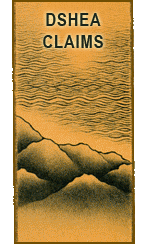DSHEA Tutorial: Disease Claims Through Journal Citations

Non-Compliant Workaround #5: implying a disease claim by citing or referencing a peer reviewed journal or other authoritative source.
In particular, the FDA states that:
citation of a title referring to a disease will be treated as a disease claim, if, in the context of the labeling as a whole, the citation implies treatment or prevention of a disease, e.g., through placement on the immediate product label or packaging, inappropriate prominence, or lack of relationship to the product’s express claims.
Now the FDA’s guidelines do offer a little wiggle room, especially when the intent is to otherwise educate the public with credible research that supports your claims. The guidelines talk a lot about “context”. Simply stated, if you’re using the citations to make a disease claim, you’re going to receive a letter from the FDA, otherwise, not.
Let’s look at this issue in more detail.
Let’s say you’re claiming that Shen Ling Bai Zhu San “supports healthy poop” in Spleen qi deficiency patients and you have research that supports that statement. That’s okay as long as you put the reference lower on the page where it can’t be confused with part of the name or other key element of the page. The goal here is to allow online marketers to include peer reviewed research references but not to use the title of those references as a claim. There is a huge gray zone here, but I believe that if you remain true to the FDA’s intent, there shouldn’t be a problem. For instance putting on the bottle’s label something like :
Shen Ling Bai Zhu San
Harvard University Research Says it Cures Diarrhea
would probably not pass the FDA rules. Whereas the FDA would look more favorably on something like :
Shen Ling Bai Zhu San
Supports Healthy Poop (1)
1. Harvard University Press, Shen Ling Bai Zhu San Consolidates Loose Stools. Am.J of Diarrhea (2006)
Another inappropriate use of citations is when the name of the journal is used to imply a disease claim:
Shen Ling Bai Zhu San
Supports Healthy Poop (1)
1. Some MD., Strange Sounding Chinese Medicine Available in Third World Countries, American Society of Diarrhea Newsletter (2006).
So the goal in the above citation was to get the word “diarrhea” cited even though the article may have nothing to do with Shen Ling Bai Zhu San, nor its efficacy.
Another non-compliant workaround you shouldn’t consider is adding references that have no relationship to the actual product or its functions. This might look like this:
Shen Ling Bai Zhu San
Supports Healthy Poop (1,2,3)
1. Stone, et al, The use of Chinese herbs in colo-rectal cancer, Am. J of colo-rectal cancer, (2006)
2. Rock, et al, Acupuncture in the treatment of cancer of the lower bowels, Am. J or Lower Bowels, (2006)
3. Pebbles, et al, Cancer of the Large Intestine, a Retrospective Meta-Analysis, Am. J. of Large Intestine, (2006)
In this case, we’re implying that Shen Ling Bai Zhu San would be of benefit to colon cancer. These types of information twisting is actually somewhat effective on web pages because search engines can only base their understanding of what your page is about by the words that appear there. By adding these three references, you might see this page start to rise on searches for colon cancer. The FDA will not look favorably on this. Honestly, it would bug me too. Search engines don’t like to see this kind of manipulation either.
The FDA will track down bogus research too. If your references are not accurate (I would encourage a simple hyperlink directly to the PubMed citation) the FDA can state that your references are attempting to imply a disease claim.
Here’s an example for you:
Shen Ling Bai Zhu San
Supports Health Poop (1)
1. Koop, CE., Shen Ling Bai Zhu San, a Chinese Formula Used to Treat Diarrhea. World J Gastroenterol 2001; August 7(4):515-521 [link]
Citations can’t favor one brand, manufacturer or distributor. If you do some in-house research that suggests your particular brand of Shen Ling Bai Zhu San is effective for the use of Spleen qi deficiency diarrhea, the FDA is going to conclude that this is not a publication who’s intent is to educate or disseminate information, but rather to sell a product, in which case it is nothing more than a disease claim.
Sometimes, when you look into the fine print of credible research, brand names are used, plus the manufacturing process to at least give other researchers who might want to duplicate the study a sense of how the brand went about making its product. If however you see a lack of this sort of information hiding behind the word “proprietary”, this research is going to start looking like marketing a disease claim again.
Next: disease claims by making a claim that your product treats disease, for those who like the more direct route to non-compliance.
 Last modified: August 11, 2009
Last modified: August 11, 2009  Tags: Claims, DSHEA В· Posted in: Claims
Tags: Claims, DSHEA В· Posted in: Claims
